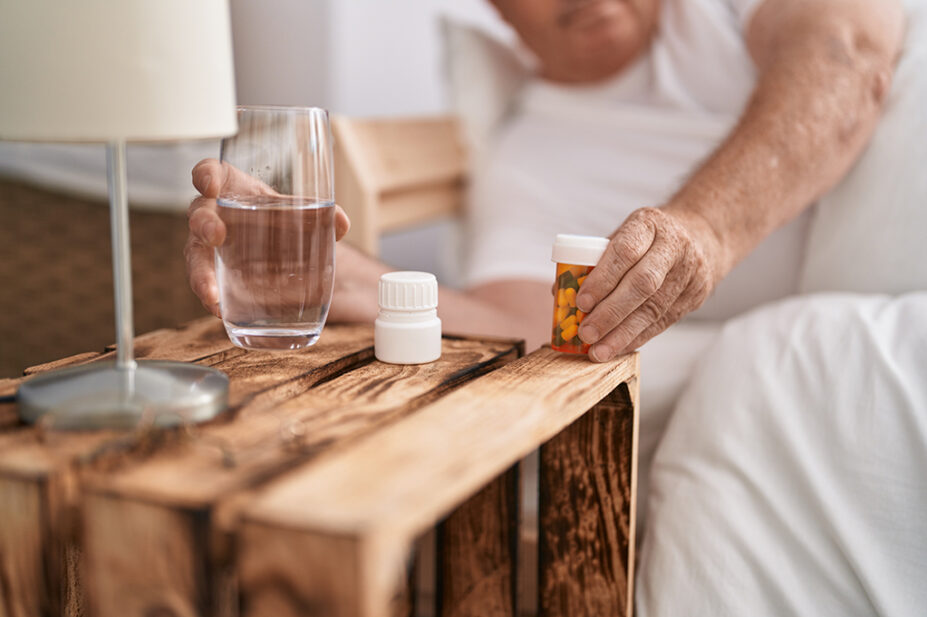
Shutterstock.com
Patients who take the same medicines at home as they did in hospital are less likely to be admitted to A&E, according to a report by the Association of the British Pharmaceutical Industry (ABPI).
The report, ‘Bringing healthcare home: a blueprint for collaborative clinical homecare’, published on 31 July 2025, found that when a patient moved from hospital to homecare and continued to received specific medicines across both settings, “the rate of A&E admission fell from 0.5 to 0.3 per patient”.
It also found that the number of hospital bed days fell from 2.4 to 1.8 bed days per patient.
The report suggests that this reduction in the number of hospital bed days could result in significant cost savings for the NHS, as the estimated cost of an unelected bed day is £1,095.45.
“With an average of 2.4 bed days saved per patient, the potential cost saving is enormous. In total, patients receiving homecare spent 703 fewer days in hospital beds compared to those who did not — equating to a cost saving of £770,101.35,” the report said.
Extrapolated across the estimated 640,000 people receiving homecare services in the UK, the ABPI said that this equates to more than 1.5 million bed days saved, which represents a potential saving of £1.67bn to the NHS.
Commenting on the data, Stephen Cook, chief pharmacist at Medway Maritime NHS Trust, said: “This is a really interesting result and certainly warrants further investigation.
“We have good evidence that use of clinical homecare provides a better patient experience and a range of economic benefits. Early analysis of this data would suggest that it also provides better health outcomes for our patients and reduces demand on local healthcare services.”
Shane Kailla, principal pharmacist and advanced clinical practitioner in acute and emergency medicine at the Royal Wolverhampton NHS Trust, said: “With average wait times in emergency departments across the country exceeding four hours on a regular basis, the implementation of clinical homecare pathways is a welcome initiative being championed through cross-collaboration of NHS trusts and pharmaceutical companies.
“The positive strides made through homecare helps to highlight the impact of the right medication to the right patient in the most effective manner and the positive effect this can have on reducing NHS pressures.”
However, the report also noted variable access for patients to homecare across the UK, as a result of the “level of engagement and prioritisation of homecare given by their local trusts”.
It added that access to healthcare can be particularly challenging for patients living in rural or underserved areas, and homecare can address these challenges.
As part of the report, the ABPI surveyed 124 NHS professionals and found that 71% of respondents believe clinical homecare improves geographical access to care for patients.
You may also be interested in

‘Urgent’ need for community pharmacy to play a role in medicines homecare services, review says

Patient organisations call for simplified e-prescribing in homecare medicines services
